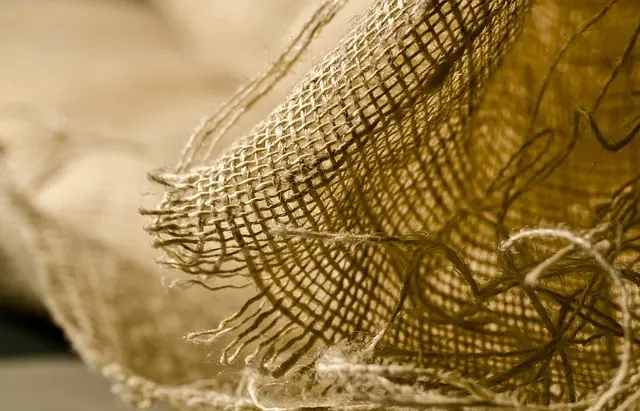Kratom Louisiana has gained traction as a natural remedy for inflammation due to its alkaloids mitragynine and 7-hydroxymitragynine. These compounds are believed to interact with opioid receptors to provide pain relief and potentially reduce inflammation by inhibiting specific cytokines and enzymes. The anti-inflammatory properties of kratom are particularly relevant in Louisiana, where chronic inflammation is prevalent. While preclinical studies suggest its promise for arthritis and other inflammatory conditions, the safety, efficacy, and optimal dosage of kratom are still under review. It's crucial for individuals considering kratom as a health option to consult healthcare providers, monitor the evolving scientific research, and understand the changing regulatory environment in Louisiana. Users should also be aware of the varying effects of different kratom strains and exercise caution with other medications to avoid adverse interactions. Always ensure you are complying with local laws regarding kratom's legality in Louisiana.
Exploring the therapeutic benefits of kratom, particularly its anti-inflammatory properties, has garnered significant attention among Louisiana residents seeking natural relief. This article delves into the scientifically grounded potential of kratom, a plant native to Southeast Asia, to alleviate inflammation. We will unpack the mechanisms behind its active compounds, mitragynine and 7-hydroxymitragynine, and provide guidance on safe usage for those in Louisiana looking to harness these benefits. Understanding kratom’s role in inflammation reduction can pave the way for informed decisions on its use as an alternative therapy within the state’s diverse healthcare landscape.
- Understanding Kratom and Its Anti-Inflammatory Potential in Louisiana Residents
- The Role of Mitragynine and 7-Hydroxymitragynine in Inflammation Reduction with Kratom in Louisiana
- Safe Kratom Usage for Inflammation Relief: A Guide for Louisiana Consumers
Understanding Kratom and Its Anti-Inflammatory Potential in Louisiana Residents

Kratom, a tropical tree native to Southeast Asia, has garnered attention in Louisiana for its purported anti-inflammatory properties. Locals interested in kratom louisiana turn to this botanical as a potential natural remedy for inflammation-related conditions. The leaves of the kratom plant contain alkaloids such as mitragynine and 7-hydroxymitragynine, which are thought to contribute to its anti-inflammatory effects. These compounds interact with the body’s opioid receptors, potentially modulating pain and inflammation responses. In Louisiana, where a significant portion of the population experiences chronic inflammation due to various factors like lifestyle, diet, and environmental exposures, kratom louisiana use is becoming increasingly prevalent among those seeking alternative or complementary approaches to health and wellness.
The anti-inflammatory potential of kratom louisiana is an area of ongoing research, with studies suggesting that it may offer a natural alternative to traditional anti-inflammatory drugs. Preclinical research has indicated that kratom extracts could reduce inflammation in animal models, offering a glimmer of hope for those suffering from conditions like arthritis or other inflammatory diseases. However, it is crucial for individuals considering kratom as a treatment to approach its use with caution. The regulatory status of kratom varies, and its safety, efficacy, and appropriate dosing remain subjects of scientific inquiry and regulatory debate. As such, those interested in exploring kratom louisiana for inflammation reduction should consult healthcare professionals and stay informed about the latest research findings and regulations.
The Role of Mitragynine and 7-Hydroxymitragynine in Inflammation Reduction with Kratom in Louisiana

In Louisiana, where inflammation-related conditions are prevalent, kratom has garnered attention for its potential role in inflammation reduction. The primary compounds responsible for kratom’s anti-inflammatory properties are mitragynine and 7-hydroxymitragynine. These alkaloids have been studied for their ability to modulate the immune response, which is pivotal in the context of inflammation. Mitragynine, one of the chief active ingredients in kratom from Louisiana, interacts with opioid receptors and may exert anti-inflammatory effects by inhibiting certain cytokines and enzymes involved in the inflammatory process. Similarly, 7-hydroxymitragynine, another potent alkaloid present in kratom leaves, has shown promise in reducing inflammation through its analgesic and anti-inflammatory actions. Research suggests that these compounds can influence multiple pathways linked to the body’s inflammatory response, offering a potential natural alternative for managing inflammatory conditions. The use of kratom in Louisiana, therefore, presents an intriguing avenue for individuals seeking to alleviate symptoms associated with inflammation, though it is important to approach such alternatives with caution and under the guidance of healthcare professionals.
Safe Kratom Usage for Inflammation Relief: A Guide for Louisiana Consumers

For residents of Louisiana seeking natural remedies for inflammation, kratom has emerged as a promising alternative to conventional over-the-counter and prescription medications. Kratom, derived from the leaves of the Mitragyna speciosa tree native to Southeast Asia, contains alkaloids that have been traditionally used to alleviate pain and reduce inflammation. When considering kratom louisiana consumers should be aware of safe usage practices to maximize its potential benefits while minimizing risks.
To safely utilize kratom for inflammation relief in Louisiana, it’s crucial to start with a low dose to assess individual sensitivity. Kratom strains and their alkaloid profiles can vary significantly, influencing the intensity of its effects. Strains such as Maeng Da and Bali are often favored for their pain-relieving properties, but understanding the right dosage is key. Consumers should also be mindful of potential interactions with other medications and consult with a healthcare provider before integrating kratom into their wellness routine, especially if they have pre-existing health conditions or are taking other treatments for inflammation. Additionally, Louisiana’s legal status of kratom should be verified, as regulations can vary by region and change over time. By adhering to safe usage guidelines and staying informed on local laws, Louisiana consumers can responsibly explore the benefits of kratom for inflammation relief.
In conclusion, the potential of kratom as a natural approach to inflammation reduction has been thoroughly explored within Louisiana communities. The active compounds mitragynine and 7-hydroxymitragynine have shown promise in modulating inflammatory responses without the need for conventional pharmaceuticals. While the use of kratom must be approached with caution, adhering to safe consumption guidelines is paramount for Louisiana residents seeking relief. As evidenced by the current understanding and research, kratom’s role in managing inflammation presents an avenue worth considering as part of a comprehensive health strategy. It is important for individuals to consult healthcare professionals before integrating kratom into their wellness regimen, ensuring a safe and informed experience with its anti-inflammatory properties.






